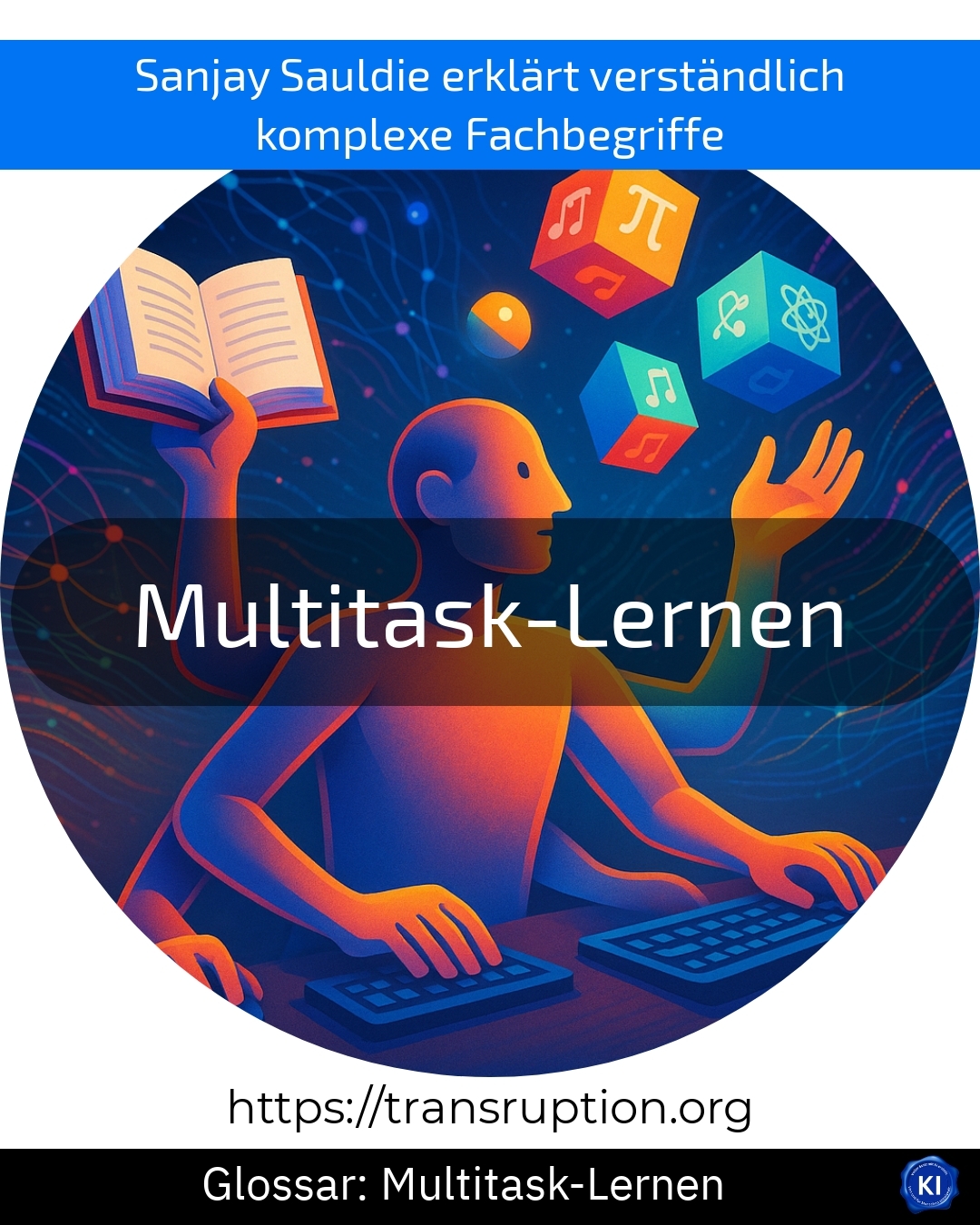The term multitask learning is primarily used in the fields of artificial intelligence, big data, smart data and automation. Here, multitask learning refers to a method in which a computer programme learns and solves several tasks simultaneously instead of just working on a single task.
Imagine that an artificial intelligence is supposed to sort emails automatically. Instead of just teaching it to distinguish spam from normal messages, it can simultaneously learn to categorise emails by topic and recognise personal messages from previous contacts during multitask learning. This allows the system to better utilise overlaps and patterns between tasks. As a result, it becomes more efficient and accurate more quickly with less data.
Multitask learning is particularly helpful when data for individual tasks is scarce or the tasks are related. In companies, this method can help to speed up processes, reduce costs and develop more intelligent automation solutions. Ultimately, users benefit because systems are more versatile and reliable - a clear advantage in today's digitalised world.















